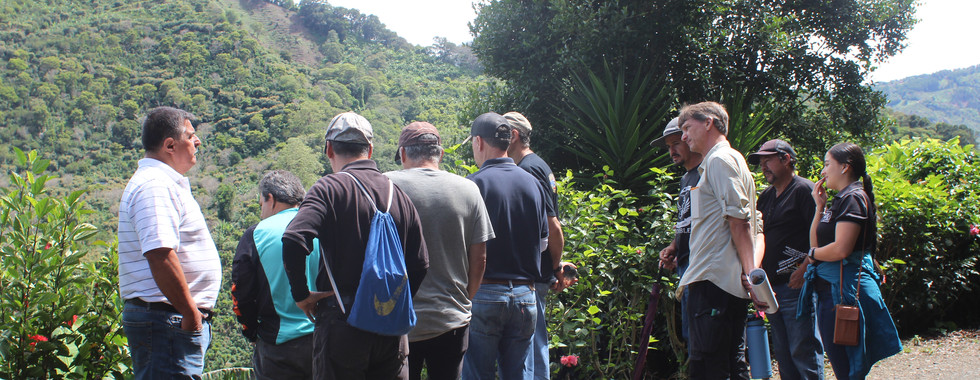Coffee farmers in Costa Rica share experiences and best practices in sustainable agriculture
- Communications

- Jun 20, 2023
- 2 min read
We recently hosted a series of trainings with associated farmers of the Coopedota coffee cooperative in Dota, Costa Rica. From organic composting to the appropriate use of safety equipment, these training courses were a refreshing approach to disseminating best practices in sustainable agriculture, by farmers and for farmers.
The trainings were sponsored by Syngenta.
Women play key roles in the global food production industry and are essential for sustainable and regenerative agriculture.
Led by Inés Naranjo, we hosted a workshop for women smallholders on mountain microorganisms and organic fertilizers.
She produces her own organic fertilizers in her home, and has been successfully doing so for years, forgoing the use of herbicides and chemical fertilizers to cultivate coffee and medicinal plants.
Farmers sharing with farmers makes sustainable and regenerative practices stick for the long run. Coffee producer Mauricio Fallas hosted and led an experiential training with other smallholders from Coopedota R.L.
Mauricio's farm, a living example of regenerative farming, has thrived for more than 20 years without a single application of herbicides. Soil and biodiversity conservation practices have been key for his farm's success and health.
Participants had the chance to learn about the factors that affect soil quality and how to minimize the use of agrochemicals. Also, a practical exercise with water-sensitive paper and a water-filled spraying tank helped them to understand how to reduce agrochemical use and keep them from affecting nearby forests and water sources.
What's in a high-quality cup of coffee? We also held an exchange of knowledge and experiences among producers, hosted by local producer Iván Gutiérrez. Coffee farmers had the chance to discuss and share insights about the factors in growing and processing coffee that made Iván win two Cup of Excellence awards for his production.
Women smallholders from the Coopedota R.L. coffee cooperative also came together to learn about the importance of appropriate protective equipment for farm laborers, and how keeping track of expenses in detail can help their farms become more profitable.
Led by Karolina Durán, the workshop also became a space to exchange experiences about the challenges and joys of being women in agriculture, and to support one another with encouragement, positivity, and wisdom in a male-dominated industry.






































































Comments